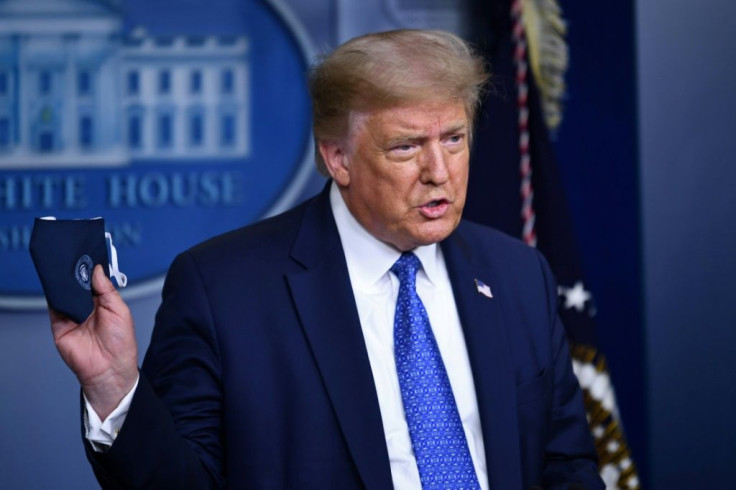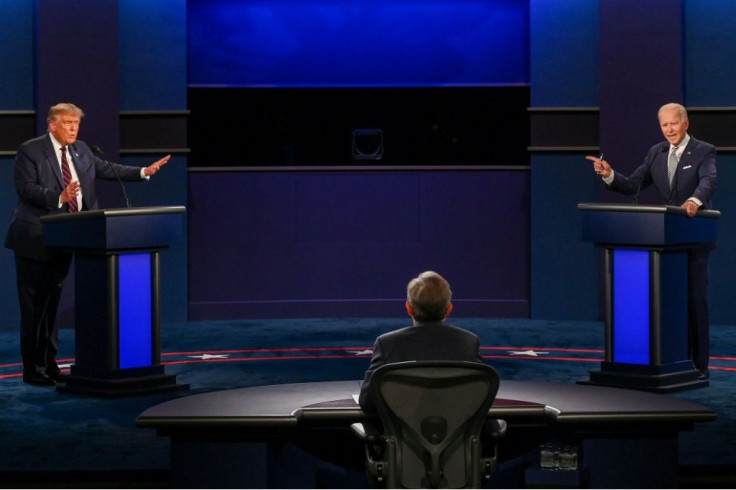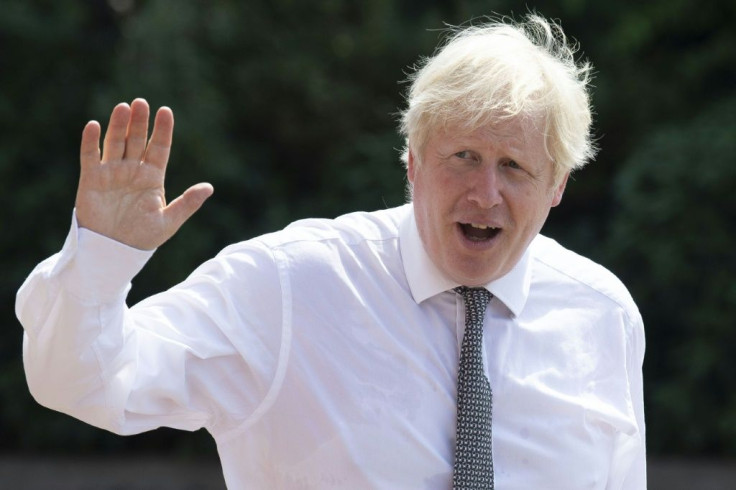Trump Age And Weight Add To Covid Risks: Experts
As a 74-year-old obese man, Donald Trump has several known risk factors after contracting Covid-19, but experts say it is difficult to predict how the American president will be affected by a disease that leaves some without symptoms but is deadly to others.
Trump has become the highest profile patient of the new coronavirus, which has scorched across the planet killing more than a million people, including 200,000 Americans.
The US president is currently "well" according to his official doctor and able to continue performing his duties from quarantine.
Experts said that while he does have several of the risk factors associated with severe forms of Covid-19 -- being male, older and overweight -- it is hard to say how the disease will affect him.
"The risk of serious disease and death depends on many factors -- some unmeasurable, so there is always uncertainty -- and it is not so simple as to make inferences from one or two alone," said Naveed Sattar, professor of metabolic medicine at the University of Glasgow.

He said that the risks may be "offset" by other factors, including if Trump has no chronic conditions and is reasonably active, noting the US leader's love of golf.
At his most recent medical check-up, published in June, Trump weighed-in at 244 pounds (110.67 kg). For his height of six feet and three inches (1.91 meters), this means he exceeded the official threshold of obesity for a second year in a row.
According to the US Centers for Disease Control and Prevention, a person in this category is three times as likely to need hospital care than someone with a lower weight.
Another high risk factor is age.
The CDC reports that eight of 10 Covid-19 related deaths in the US are of people over 65.
"In general, your risk of getting severely ill from COVID-19 increases as you get older," it says on its website.

Michael Head, senior research fellow in global health at the University of Southampton, said Trump would be classified as "vulnerable".
"Many people in their 70s will also have further co-morbidities that increase the risks of a more severe illness," he added.
Currently, however, the US leader appears to have few if any symptoms.

His official physician, Sean Conley, also described the presidential couple as "both well at this time".
"We are feeling good & I have postponed all upcoming engagements," said First Lady Melania Trump in a tweet.
Coronavirus infection can begin on a slow burn, often taking several days before symptoms appear.
"Most studies suggest that those with symptomatic COVID-19 infections could remain outside hospital during the first 5-7 days of the illness but thereafter it may become more serious requiring hospitalisation -- or they start to recover by themselves," said Julian Tang, Honorary Associate Professor at the University of Leicester.
Trump is the latest world leader to become infected.
Britain's Prime Minister Boris Johnson was hospitalised with the virus in April and spent three nights in intensive care, before recovering and returning to work.
Tang said it was "not so surprising" that both men had caught the virus, given the large number of contacts they would have as part of their everyday duties.
Trump has also been reluctant to endorse protective measures.
He first appeared in public in a mask in July, but has since rarely been seen wearing one.
"That Donald Trump became infected was not an inevitability, but is consistent with him being a high risk candidate for infection," said Rowland Kao, professor of veterinary epidemiology and data science at the University of Edinburgh.
He said this was both because of the "his apparent attitudes towards personal protective measures" such as maintaining physical distance and face masks, as well as his large number of contacts.
Kao said this also raised concerns about others he and his entourage may have come into contact with in recent days -- which would include this week's televised presidential debate with his 77-year-old electoral challenger Joe Biden.
"His actions now have great importance in terms of reducing that risk of creating new outbreaks, but perhaps most importantly as an example to others - whether that is for better or worse is up to him," he added.
Trump sparked uproar earlier this year by saying he was taking hydroxychloroquine as a preventive measure, against the advice of many medical authorities.
The drug, which he later stopped, has shown in several trials to have no benefit as a Covid-19 treatment.
© Copyright AFP 2024. All rights reserved.





















